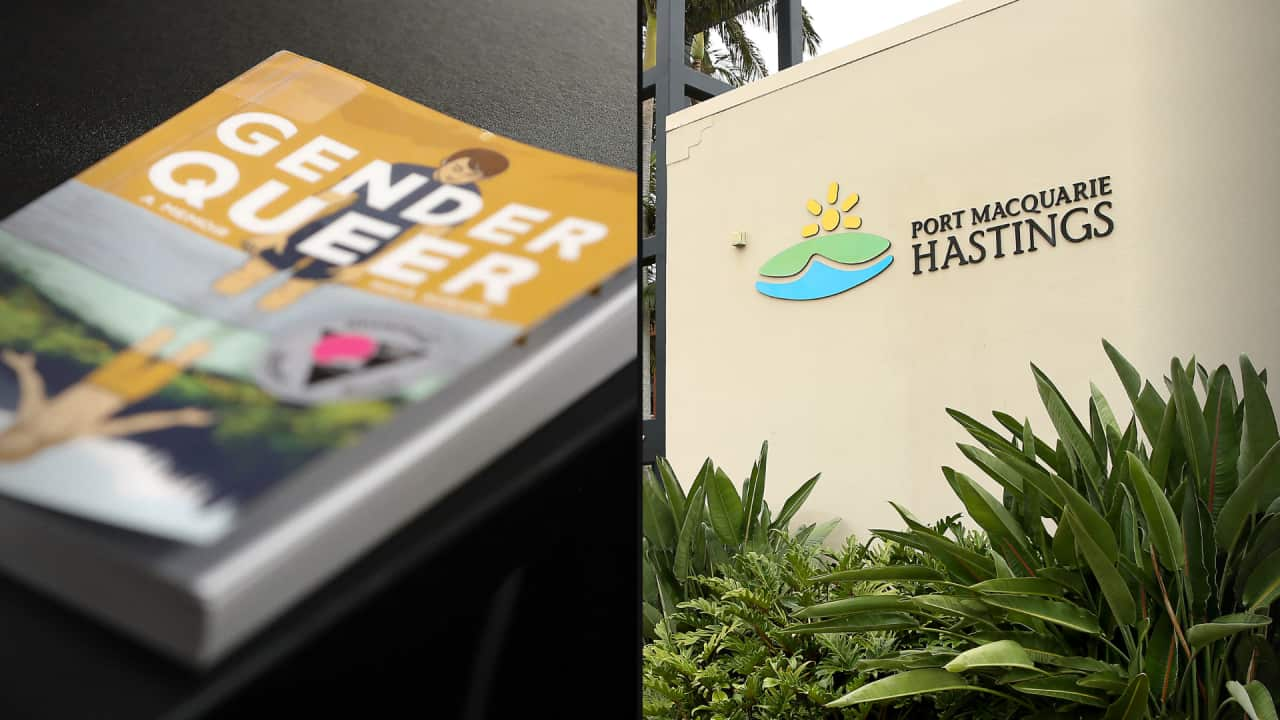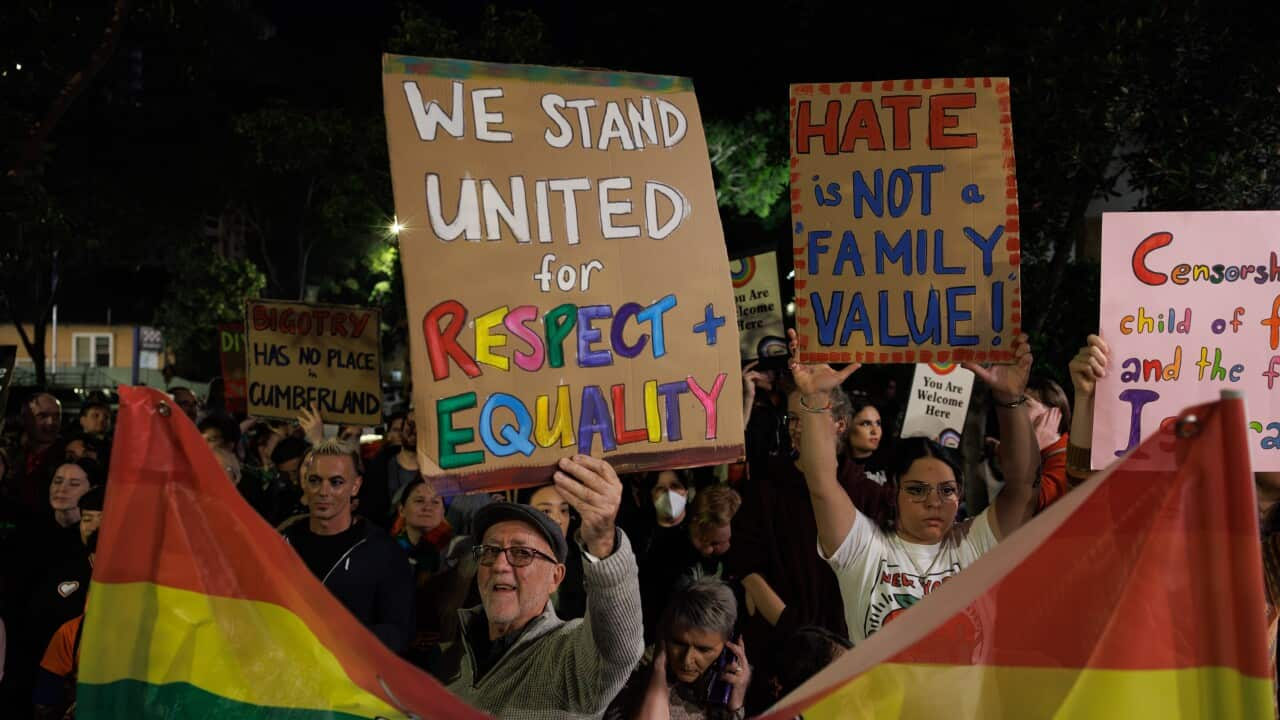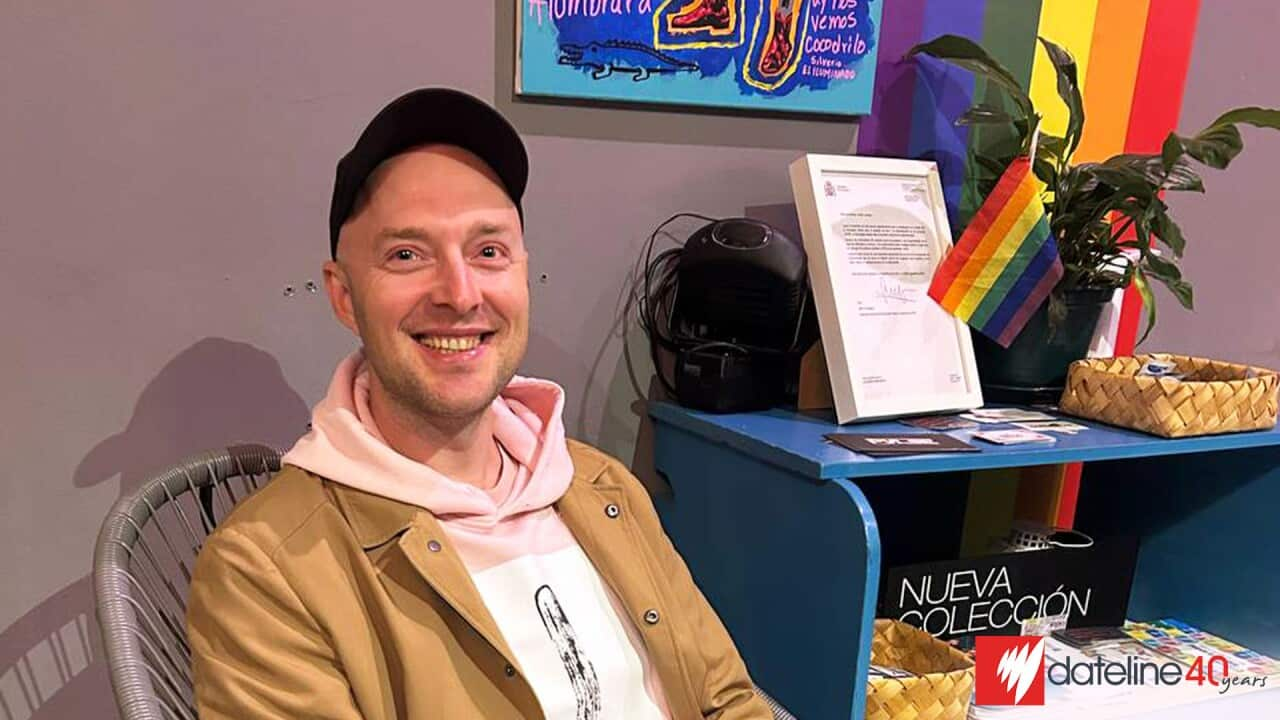Key Points
- A NSW council has discussed a notion of motion on content containing "sexually explicit" material in libraries.
- An LGBTIQ+ advocate have raised concerns about the motion and say restricting access to books would be harmful.
- The council said no book bans have been proposed and a brief will be provided in December.
A council has denied seeking to ban sex education and LGBTIQ+ books after a notice of motion was put forward proposing restrictions to prevent minors from books that contain "sexually explicit content".
The original motion put to Port Macquarie Hastings Council in NSW named the books by Yumi Stynes and Dr Melissa Kang, and that has been banned in conservative parts of the United States.
A redrafted motion presented to the council was not specific to any particular titles but focused on access restrictions and age-appropriate content.
Abbie Jane, a 15-year-old Port Macquarie resident, said representation in books and pop culture is invaluable as a young queer person growing up in a small town, adding the restrictions were homophobic, describing them as "incredibly insensitive".
But in the mid-October council meeting, Libertarian councillor Mark Hornshaw claimed "paedophiles have used sex education books to prove to children that such sexual behaviour is acceptable", citing a 2010 report from the US Office of Juvenile Justice and Delinquency Prevention (OJJDP).
'A step back in history'
Jane believes these restrictions would be homophobic.
"When these meetings happen, when these discussions happen about how these books are inappropriate, it takes a step back in history so much," she said.
"And people think that homophobia doesn't still exist, but it does. And it's exhausting, and the fact that we're still fighting for this is awful."
Jane, who is an LGBTIQ+ advocate and created the Rainbow Shoelace Project initiative in 2022, said these types of books are valuable educational resources for young people.
In the age of the internet and social media, she believes restricting these items in libraries would mean many children would purely rely on the internet to educate them about sex, relationships, and LGBTIQ+ issues.

Abbie Jane believes it is important for young people to have access to books about sexuality and consent. Source: AAP
"That is when misinformation is spread, when people learn stereotypes, when people find things like pornography and start to watch really violent and non-consensual sex and also unsafe sex practices," she said.
"The books Welcome to Sex and Gender Queer are not only educating young people on safe sex, it's also educating them on queer sex and things like that, which is often taboo, but it shouldn't be taboo because it's a normal human thing to happen."
What was the notice of motion about?
The notice of motion was put forward at the council's 17 October meeting by Hornshaw, who requested a brief detailing policies and obligations regarding publications and videos held in libraries that contain sexually explicit content.
The notice highlighted accessibility to different age groups, consideration of concerns raised by community members, child safety, and the wellbeing of patrons and staff.
It also discussed the prevention of material being used "for criminal purposes, including but not limited to grooming, domestic and gendered violence".
The move raised concerns books with LGBTIQ+ themes would be banned under the motion, which Hornshaw has denied.
"LGBTQ-identifying youth are not under a cloud of suspicion, and I'm sorry it was perceived that way," Hornshaw said during the October council meeting, clarifying that his concerns were around the depiction of paedophilic material.
Hornshaw referenced a 2010 OJJDP report that says: "Children accept what they see in books, and many paedophiles have used sex education books to prove to children such sexual behaviour is acceptable". The author of this report said its contents were based on his "reflective experience" stemming from the thousands of cases he had "objectively consulted or studies" and certain points were "simply [his] opinion".
"This is not about whether it's a same-sex or opposite-sex encounter, but solely whether it involves paedophilia," Hornshaw said.
While not referring to it by name in his speech, the original motion published suggests this may refer to , which has been the subject of book bans across conservative parts of the US for allegedly portraying pedophilic material.
Hornshaw also referred to a "recent federal court finding" during his speech. A few days before the council meeting, the federal court ordered Australia's classifications review board to review its classification of Gender Queer. That came after rightwing activist Bernard Gaynor launched a legal challenge after a review last year where the board left it as unrestricted and classified "M — not recommended for readers under 15 years".
Kobabe has previously said challenges to the graphic novel-style memoir have come from those who want to "limit queer, trans and non-binary voices in the public sphere".
"It is a story of acceptance. It is a story of coming out [as nonbinary]. And in the story, I face no negative consequences to coming out," Kobabe has said.
Those opposing Hornshaw's motion argued parents, not councils, should guide minors' reading and said children could access more harmful images on the internet than books.
Hornshaw said the libraries under the council's jurisdiction "no doubt" had policies in place to prevent criminal behaviour.
"With a suitable briefing, councillors in turn can help reassure the public that we are indeed protecting the most vulnerable," he told the meeting.
The Port Macquarie Hastings Council told SBS News that no books would be banned under the motion, and councillors would receive a briefing by December regarding the points raised.
Another council's book ban backflip
In May, Cumberland City Council in western Sydney voted to ban books featuring same-sex parents.
Councillor Steve Christou proposed the motion, asking the council to take "immediate action" to "rid" same-sex parent books and materials from its libraries.
Christou said he had been approached by parents who were upset about the presence of the book, Same-Sex Parents by Holly Duhig, in the toddler section of their local library.
The ban was passed with a six against five vote.
In response, almost 50,000 residents of the Cumberland area and the public signed petitions to reverse the ban.
Caroline Staples, a long-time resident of the Cumberland area and grandmother to what she describes as a "rainbow family," launched one of these petitions.
The NSW Attorney-General Michael Daley , and the state government warned that the ban could lead to funding cuts for the libraries.
Cumberland City Council mayor Lisa Lake welcomed the move.
She told ABC News Breakfast: "I was appalled by the decision that came through at our last council meeting, and I spoke publicly about that at the time."
"I think it was a very divisive and unnecessary debate."












